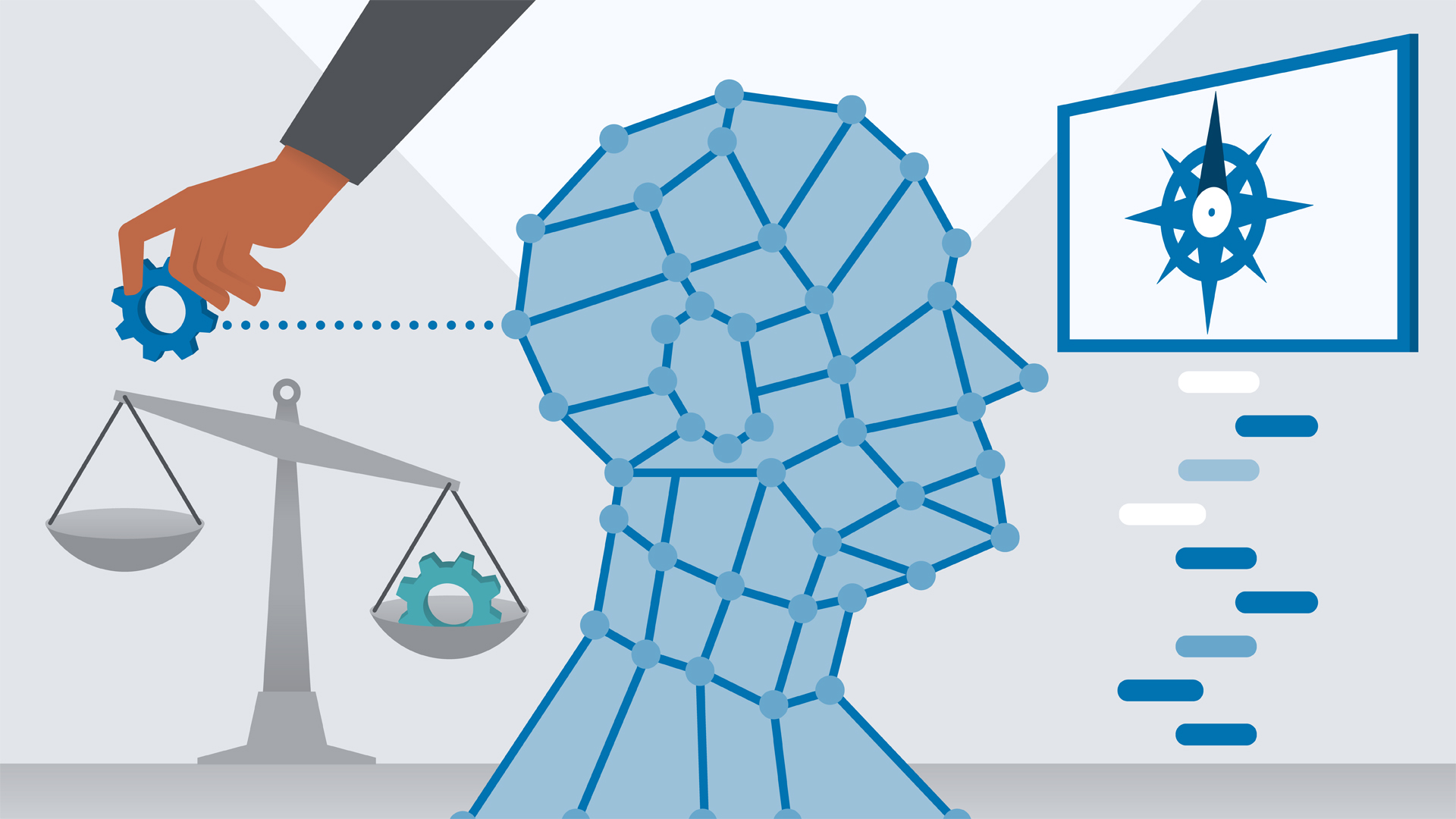
Artificial intelligence (AI) offers businesses the potential for a dramatic increase in functionality and profitability, but it can also spark an array of complex ethical, legal, and social challenges. In this nontechnical, conceptually oriented course, Barton Poulson digs into the hazards of AI, offering potential solutions to key concerns. Barton explores the ethical issues posed by AI, including competing concepts of fairness and moral reasoning. He also goes over social concerns and safety challenges for AI, such as potential life-and-death scenarios in autonomous driving. Barton concludes with recommendations tailored to developers, executives, PR professionals, regulators, and consumers to help them reap the potential of AI in a manner that's worthy of trust and profitable to all.

Deepak Agarwal is the VP of artificial intelligence (AI) at LinkedIn, a company on the frontline of data science. LinkedIn is heavily invested in AI and machine learning, transformative technologies that can improve all aspects of member experience. This investment is demonstrated in the LinkedIn AI Academy, which trains engineers and other employees on the power, potential, and best practices for developing and using AI tools. In this Q&A style course, Deepak discusses how LinkedIn leverages AI and machine learning, the ways the technology influences our lives, and what's to come, including advice for those wondering "Will AI take our jobs?" and "What skills can I learn in order to start a career in AI?"

Artificial intelligence (AI) is no longer confined to the realm of science fiction. It's on track to disrupt the world of work in a very real way, and major changes—from the rise of productization to the demand for predictability—are driving its adoption. In this course, learn about the impact that AI will have on project management, how to prepare for the changes that lie ahead, and how to harness the power of AI to work smarter. Instructor Oliver Yarbrough goes over the factors that are contributing to the growing importance of AI. He also details how to prepare for the disruption that it will cause; hone the skills that AI cannot replace; and leverage AI to more effectively initiate, plan, execute, monitor and control, close, and integrate your projects.
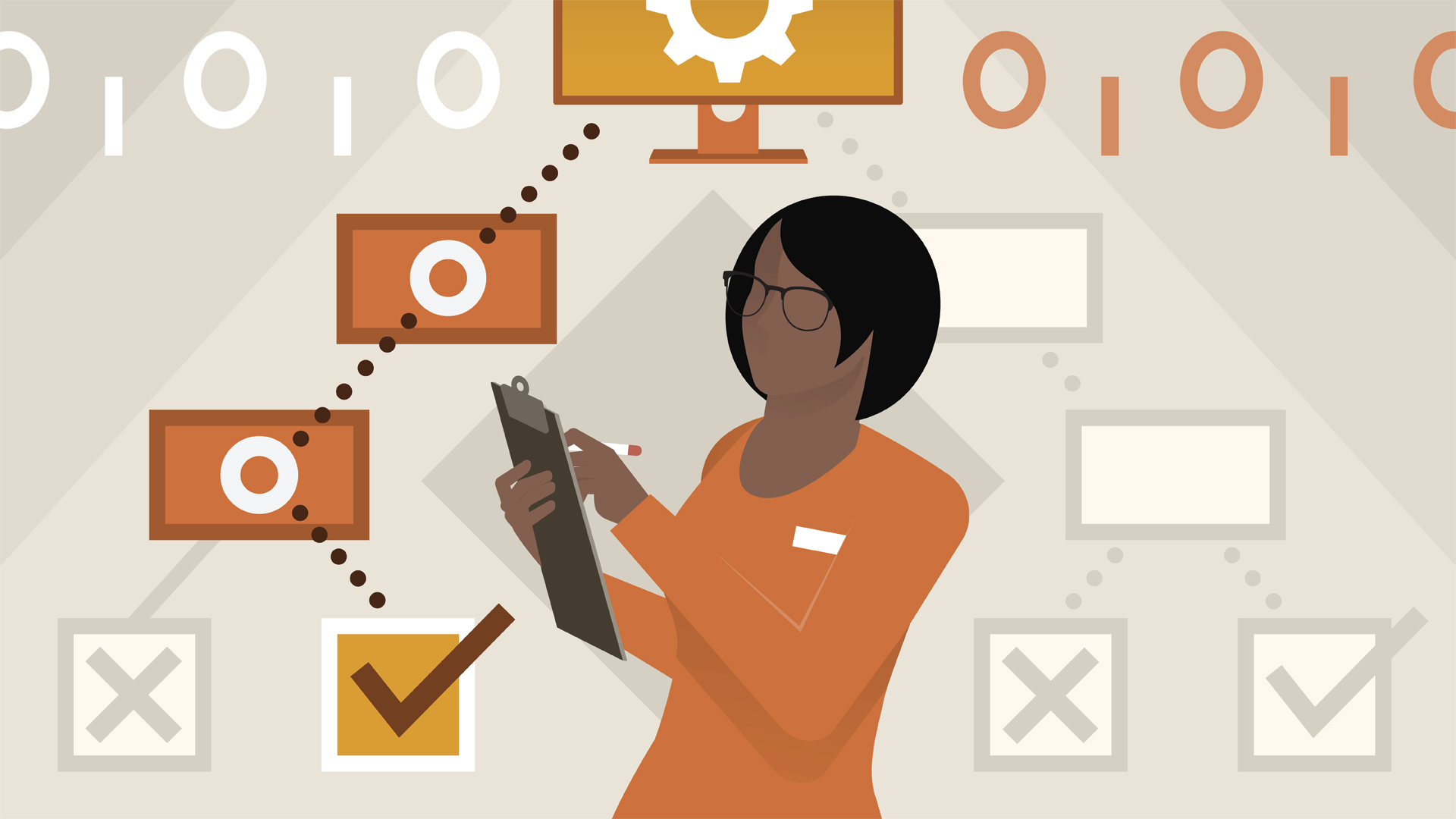
Machine learning is one of the liveliest areas in artificial intelligence. Machine learning algorithms allow computers to learn new things without being programmed. They use statistics as a way to better understand the massive amounts of data that we create every day. These newer algorithms help machines classify images, sounds, and videos. They can answer our questions, discover new drugs, and even write songs. In this course, we review the definition and types of machine learning: supervised, unsupervised, and reinforcement. Then you can see how to use popular algorithms such as decision trees, clustering, and regression analysis to see patterns in your massive data sets. Finally you can learn about some of the pitfalls when starting out with machine learning.
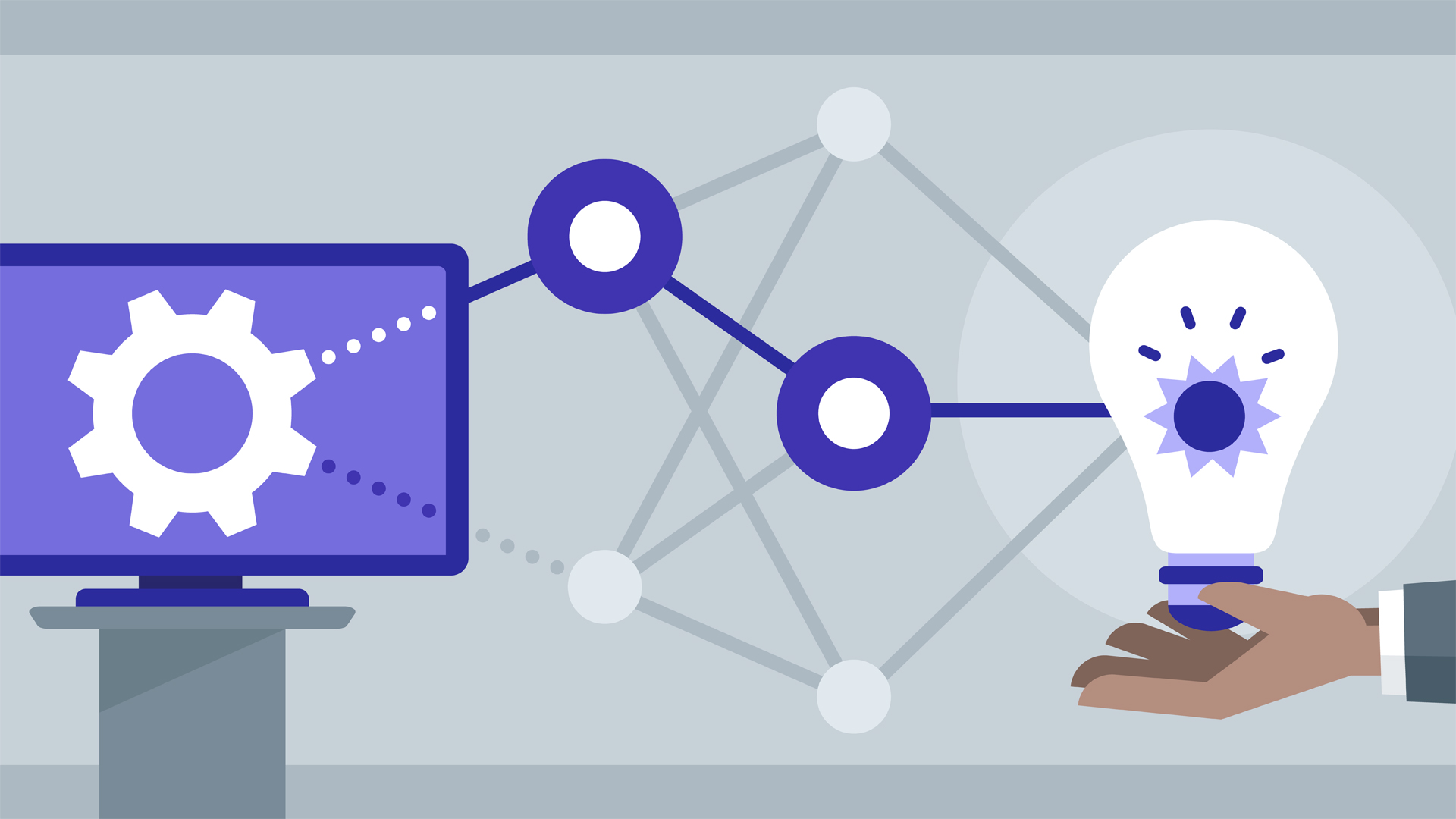
An artificial neural network uses the human brain as inspiration for creating a complex machine learning system. There are now neural networks that can classify millions of sounds, videos, and images. These machines can answer our questions, understand our behaviors, and even drive our cars. The network looks for subtle patterns in our data and then fine-tunes itself to improve over time. They can become experts in predicting our behavior, learning our languages, and finding new discoveries. In this course, instructor Doug Rose provides an overview of artificial neural networks, explaining what they are and how you can use them for your machine learning challenges. Discover ways that you can use this technology to do fascinating new things for your projects or your business.

Computer-enhanced artificial intelligence (AI) has been around since the 1950s, but recent hardware innovations have reinvigorated the field. New sensors help machines have more accurate sight, hear sounds, and understand location. Powerful processors
can help computers make complex decisions, sort through possibilities, plan outcomes, and learn from mistakes. The possibilities are thrilling; the implications are vast.
This course will introduce you to some of the key concepts behind artificial
intelligence, including the differences between "strong" and "weak" AI. You'll see how AI has created questions around what it means to be intelligent and how much trust we should put in machines. Instructor Doug Rose explains the different approaches
to AI, including machine learning and deep learning, and the practical uses for new AI-enhanced technologies. Plus, learn how to integrate AI with other technology, such as big data, and avoid some common pitfalls associated with programming AI.
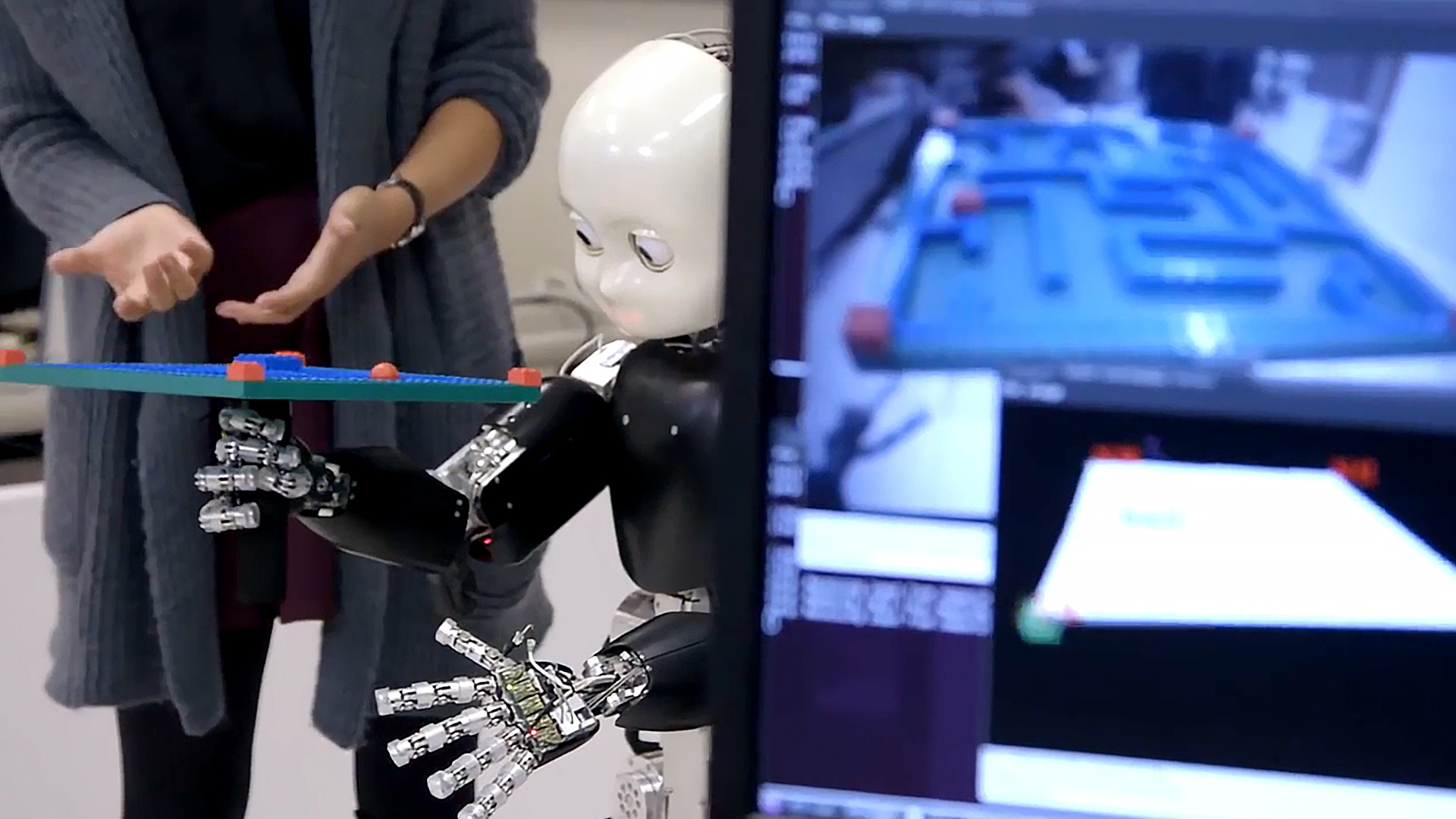
Cognitive technologies such as artificial intelligence and robotics are changing how businesses operate and the nature of work as we know it. This course, from Deloitte University Press, is designed to explain the benefits and value of cognitive technologies to business leaders, decision makers, and others who want to understand their impact on business. David Schatsky focuses on the "what" and "why," leaving you to craft a "how" that meets your organization's needs. He covers machine learning, artificial intelligence fields such as natural language processing and computer vision, and robotics. In later chapters, David examines the business case for the technologies, looking at practical applications for products and processes. Finally he reviews the impact on workers and the design of work, and takes a look forward into the future of cognitive tech. Short quizzes and assessments help you practice your knowledge. By the end of the course, you should be able to engage in productive discussions with colleagues, customers, and suppliers and help shape the cognitive technology strategy at your organization.

Do you know the difference between AI and machine learning? Do you know how they affect you, your career path, and the world around us? After taking the courses in this learning path, you'll have a mastery of the concepts and future directions of technologies like artificial intelligence and machine learning. You'll be able to make more informed decisions and contributions in your work environment.
Gain a clear and detailed understanding of how AI and machine learning work.
Learn how leading companies are using AI and machine learning to change the way they do business.
Learn how the next generation of thinking about AI is addressing issues of accountability, security, and explainability.
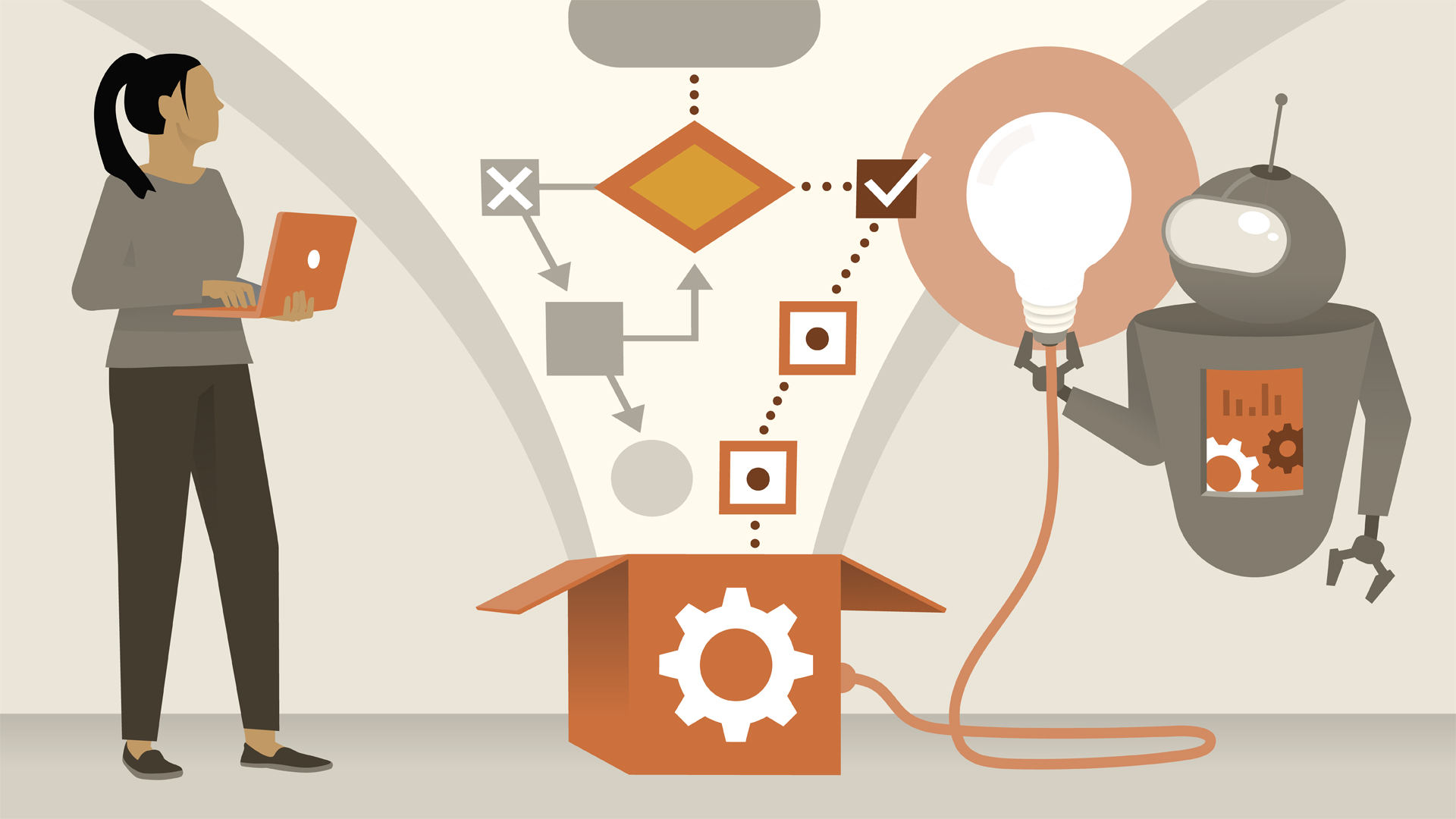
Now that AI and machine learning are widespread, people are starting to ask, "Is the technology actually making the best decisions? Can AI be trusted? How and where do humans fit in?" Explainable artificial intelligence (XAI) is a solution that increases transparency about how AI systems make decisions and take actions. This course provides a solid introduction of how XAI works and the value it provides to data science-related businesses and initiatives from legal and commercial perspectives. Instructor Aki Ohashi, director of business development for PARC, a Xerox company, bridges the gap between AI's potential and pitfalls, presenting executives, entrepreneurs, managers, and team leaders with exactly what they need to know to stay on top of how AI affects their fields. He uses real-world examples and cases studies to show what XAI is, how it works, how it's being used right now, and where it may have the most impact in the future.
